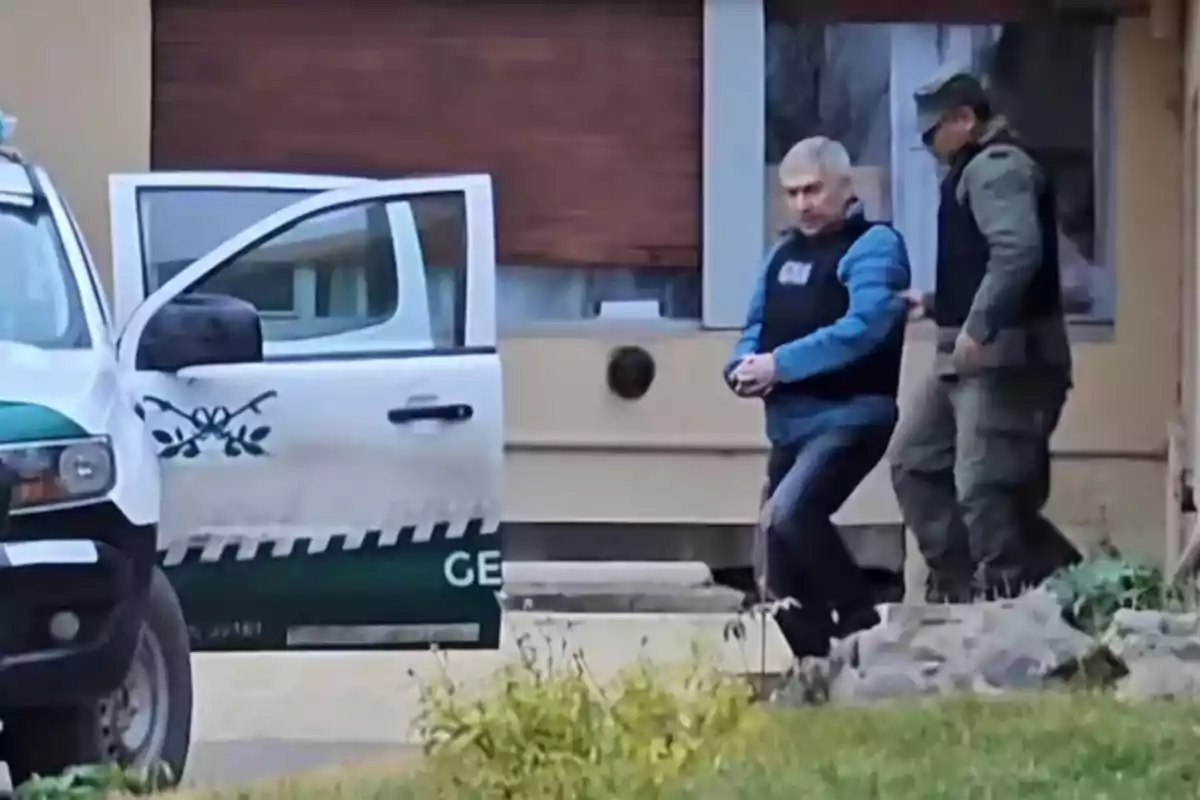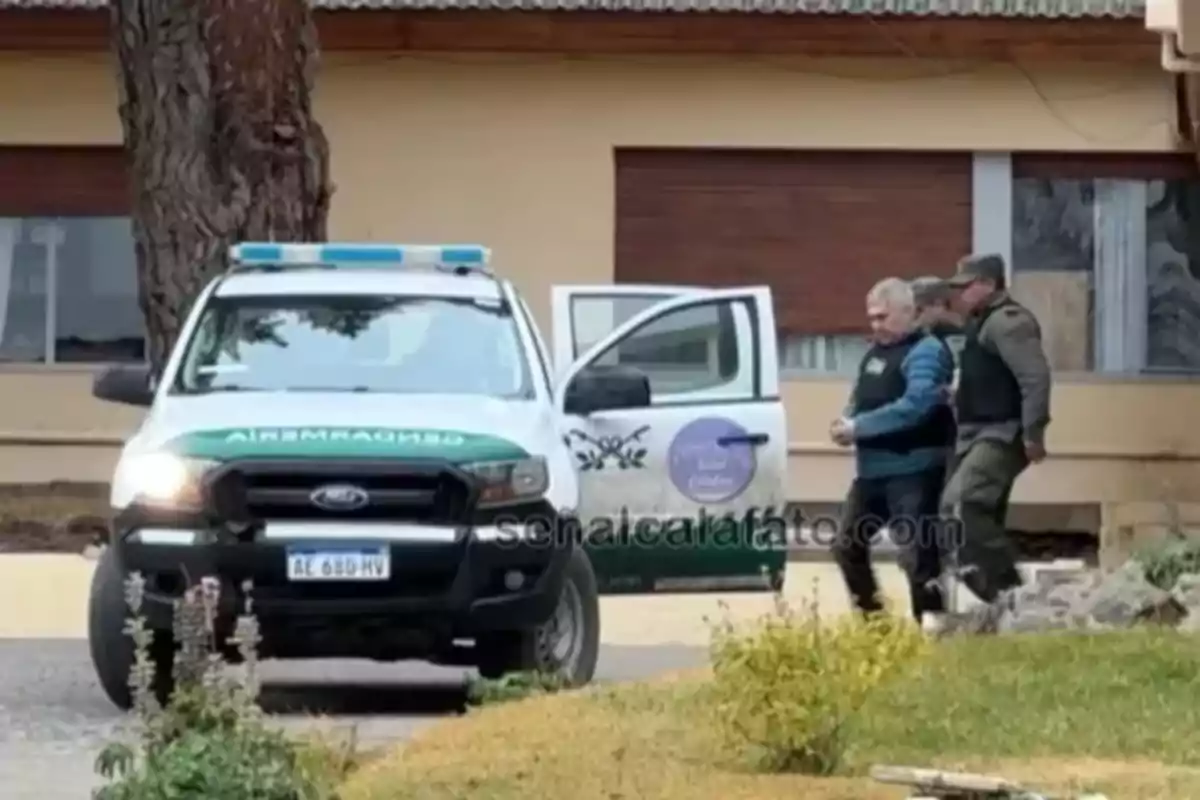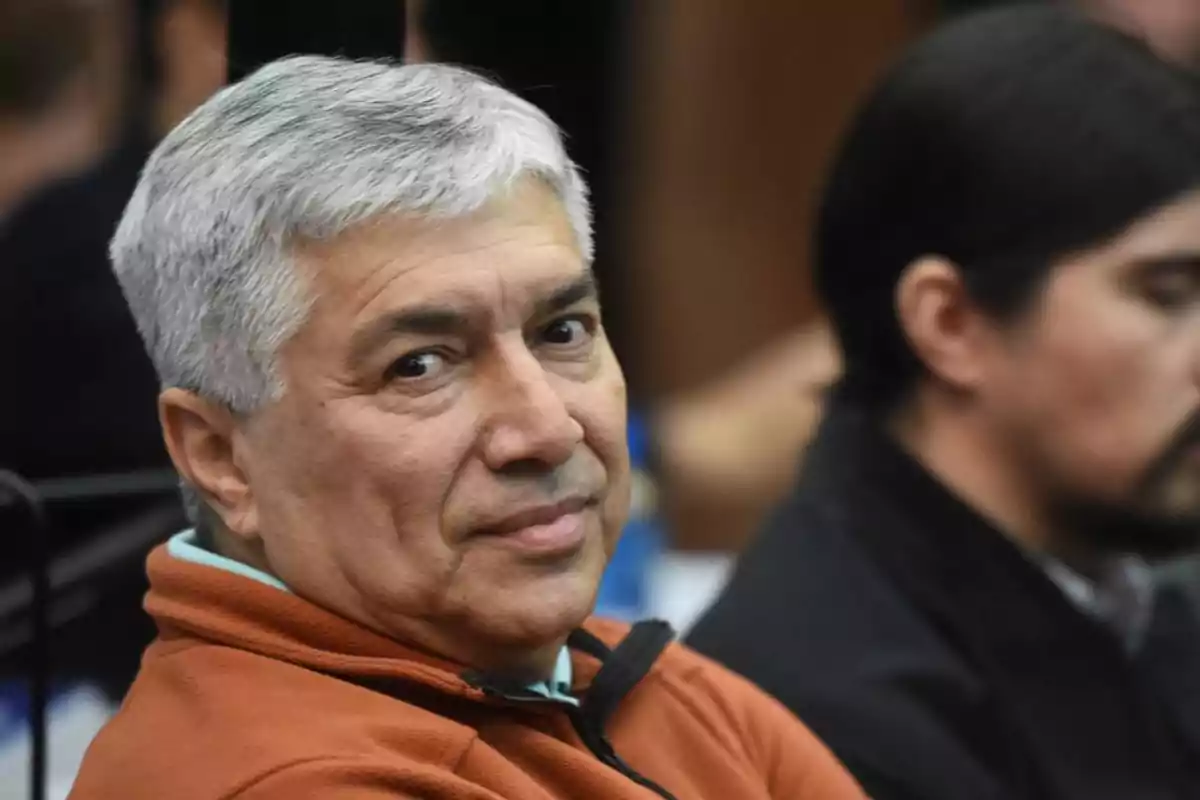
Lázaro Báez was transferred to the Río Gallegos prison for the 'K Money Trail'
The businessman must continue serving his 10-year prison sentence for money laundering
Federal Oral Court 4 of Comodoro Py ordered the immediate arrest of businessman Lázaro Báez, who must continue serving his 10-year prison sentence for money laundering in the case known as the "K Money Trail", following the confirmation of the ruling by the Supreme Court of Justice of the Nation.
The court ordered that National Gendarmerie transfer him from his current house arrest at a residence in El Calafate, Santa Cruz, to Unit 15 of the Federal Penitentiary Service, located in the city of Río Gallegos, where he will remain housed for the time being.
That same Tuesday, the Court also confirmed the conviction of the corrupt former president Cristina Fernández de Kirchner to six years in prison in the case known as "Vialidad".
"Order the immediate arrest and/or capture of Lázaro Antonio Báez for the purpose of serving the sentence imposed in the present case by final judgment, and his subsequent placement in a unit under the Federal Penitentiary Service in accordance with the considerations set forth", the ruling stated.

Unit 15, located at Avenida Presidente Néstor Carlos Kirchner 154, is a medium-security penitentiary facility, unlike the Ezeiza complex, which is maximum security, where Báez was previously held. This prison in Río Gallegos has three cell blocks and a pre-release house, with capacity for 118 inmates.
The Federal Oral Court accepted the request of federal prosecutor Abel Córdoba for Lázaro Báez to be transferred to a prison and serve the remainder of his sentence there. In contrast, the businessman's defense, represented by attorney Juan Villanueva, had requested that he continue under house arrest, arguing that he had already served almost the entire sentence.
The core of the debate was how to count the time Báez has already spent in detention. The businessman was imprisoned for the case known as "K Money Trail", related to the laundering of 55 million dollars, at the Ezeiza prison from April 5, 2016, to December 12, 2019.
After his release, he was placed under house arrest for another case related to the purchase of the "El Entrevero" ranch in Uruguay, in which he was sentenced to four and a half years in prison, although that ruling has not yet become final. Since then, he has remained under detention at his home.

According to prosecutor Córdoba, the time Báez served in the main case amounts to three years, six months, and eight days, so he still has six years, six months, and 22 days left to serve the ten-year sentence.
Meanwhile, the Supreme Court also upheld Báez's conviction in the "Vialidad" case, related to the diversion of public funds intended for public works in Santa Cruz, awarded to his companies. In response, his defense requested that the sentences from both cases be unified and that, until that happens, house arrest be maintained.
The judges' decision
However, judges Néstor Costabel, Ricardo Basílico, and Fernando Canero agreed with the prosecutor's position. "At no stage was the defense's request to consider the pretrial detentions served in both cases as a single and uninterrupted detention granted; on the contrary, the interpretation was confirmed that each pretrial detention correplied to different material facts, issued at different times, and that they should be analyzed within the framework of each particular case," they stated in the decision.
The judges also pointed out that the new argument from the defense doesn't provide any different reasoning from those previously presented: "The current position of the defense doesn't present any new element that would require this Court to depart from the criteria already maintained—which are now shared—regarding the fact that Lázaro Antonio Báez has undergone different pretrial detentions corresponding to various facts that make up the subject matter of the different cases in which he is involved."
Furthermore, the Court clarified that it is not possible to unify the sentences while the ruling in the "El Entrevero" ranch case is not final. Nevertheless, Báez's defense has the option to appeal this decision before the Federal Chamber of Criminal Cassation.
Finally, the court must also solve the situation of three co-defendants who have already served part of their sentences: attorney Jorge Chueco, accountant Daniel Pérez Gadín, and Martín Báez, Lázaro's son. For Chueco and Pérez Gadín, the prosecution requested that they return to prison. In the case of Martín Báez, it requested that he be granted parole.
More posts: